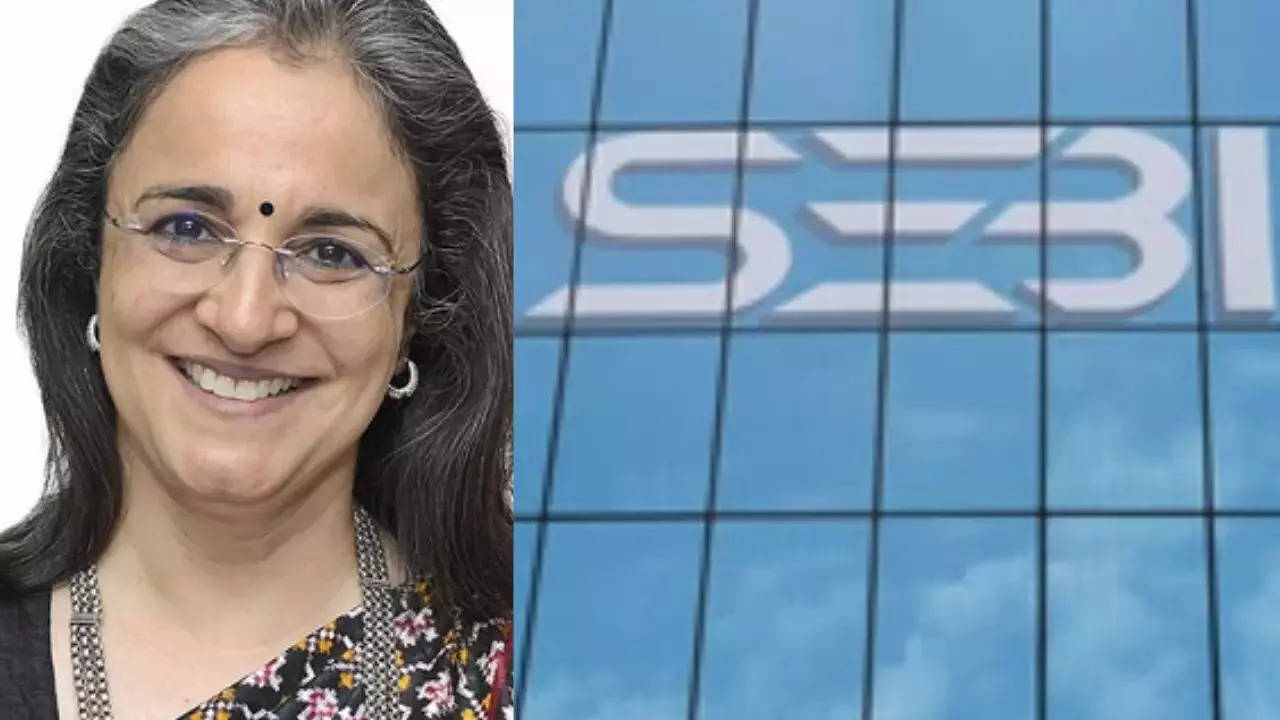NEW DELHI: Congress on Tuesday questioned ICICI Bank‘s stand that it had not paid any salary or granted ESOPs to Sebi chairperson Madhabi Puri Buch after her retirement from the financial services giant in Oct 2013 and asked that if the money paid to her was retiral benefit, “why was it non-uniform both in terms of its frequency of release and amount?”.
“Even if we were to assume that the Rs 5 crore she received from ICICI in 2014-2015 (soon after her superannuation) was part of her ‘retiral benefit’ and that she got nothing in 2015-2016, why did this so-called ‘retiral benefit’ resume in 2016-2017 and continue until 2021?,” Congress spokesman Pawan Khera said a day after the party alleged conflict of interest as Puri Buch was adjudicating cases linked to the group during her stint in the regulatory body.
Khera argued that the average salary drawn by Buch from 2007 up to 2013-14 was Rs 1.3 crore annually. “However, the so-called ‘retiral benefit’ given by ICICI to Buch from 2016-17 to 2020-21 averages to around Rs 2.77 crore. How can a person’s ‘retiral benefit’ be more than her salary as an employee?”
The bank did not comment on the fresh questions posed by the opposition party.
Congress has also said that ICICI Bank’s clarification states that “employees, including retired employees, had the choice to exercise their ESOPs anytime up to a period of 10 years from the date of vesting”.
Khera suggested that the claim may not be accurate. “…the only ESOP policy ICICI has publicly disclosed on its website, is the one uploaded on the U.S. Securities Exchange Commission (SEC) website, and it clearly states that former employees can exercise their ESOPs within a maximum of three months following their voluntary termination,” he said.
Congress also asked “why was Buch allowed to exercise ESOPs at a time when the share price of this company increased substantially, thereby benefiting her?” Khera also asked why did ICICI pay the TDS on ESOPs on behalf of Buch and whether it follows the same protocol for all its past and present employees.
“Even if we were to assume that the Rs 5 crore she received from ICICI in 2014-2015 (soon after her superannuation) was part of her ‘retiral benefit’ and that she got nothing in 2015-2016, why did this so-called ‘retiral benefit’ resume in 2016-2017 and continue until 2021?,” Congress spokesman Pawan Khera said a day after the party alleged conflict of interest as Puri Buch was adjudicating cases linked to the group during her stint in the regulatory body.
Khera argued that the average salary drawn by Buch from 2007 up to 2013-14 was Rs 1.3 crore annually. “However, the so-called ‘retiral benefit’ given by ICICI to Buch from 2016-17 to 2020-21 averages to around Rs 2.77 crore. How can a person’s ‘retiral benefit’ be more than her salary as an employee?”
The bank did not comment on the fresh questions posed by the opposition party.
Congress has also said that ICICI Bank’s clarification states that “employees, including retired employees, had the choice to exercise their ESOPs anytime up to a period of 10 years from the date of vesting”.
Khera suggested that the claim may not be accurate. “…the only ESOP policy ICICI has publicly disclosed on its website, is the one uploaded on the U.S. Securities Exchange Commission (SEC) website, and it clearly states that former employees can exercise their ESOPs within a maximum of three months following their voluntary termination,” he said.
Congress also asked “why was Buch allowed to exercise ESOPs at a time when the share price of this company increased substantially, thereby benefiting her?” Khera also asked why did ICICI pay the TDS on ESOPs on behalf of Buch and whether it follows the same protocol for all its past and present employees.
